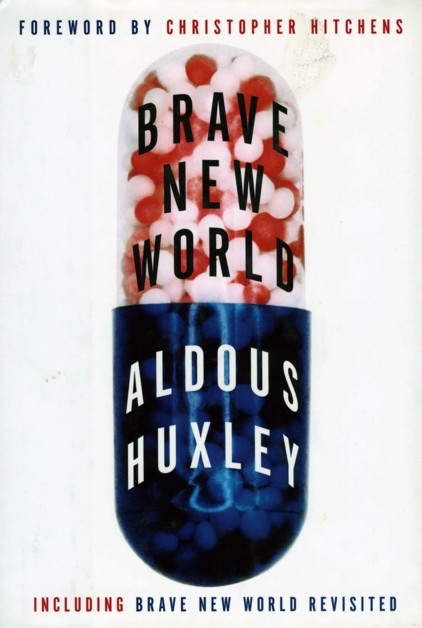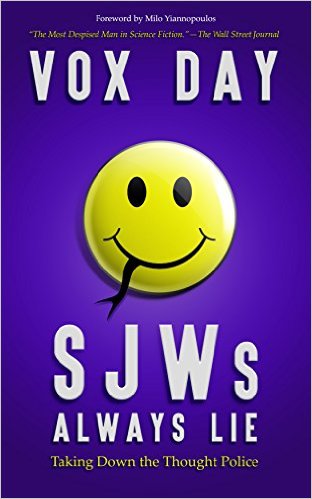 This book fetishises ugliness, in both senses of the word “fetish”. It fixates upon it, and also elevates it to the level of a talisman made of vomit and putrescence. Hogg doesn’t do softness, it does rot. It doesn’t do hardness, it does blood-stained tire irons and blood-engorged extremities. It doesn’t do dryness, except for hard industrial sheet metal that scrapes your knees during oral sex. It doesn’t do wetness, it does blood, spit, mucus, and bodily fluids. Stephen King once said that being hangover gives you an uncanny ability to zero in on only the ugliest things in your surroundings. If so, Hogg‘s having the worst morning after in history. And it’s written by a legendary science fiction author.
This book fetishises ugliness, in both senses of the word “fetish”. It fixates upon it, and also elevates it to the level of a talisman made of vomit and putrescence. Hogg doesn’t do softness, it does rot. It doesn’t do hardness, it does blood-stained tire irons and blood-engorged extremities. It doesn’t do dryness, except for hard industrial sheet metal that scrapes your knees during oral sex. It doesn’t do wetness, it does blood, spit, mucus, and bodily fluids. Stephen King once said that being hangover gives you an uncanny ability to zero in on only the ugliest things in your surroundings. If so, Hogg‘s having the worst morning after in history. And it’s written by a legendary science fiction author.
It’s an eternal complaint: the Dear Reader betrayed. David Gemmell once described buying Michael Moorcock book, expecting gallivanting adventures with dragons and wizards, and getting a dragonless yarn about a black transvestite. He said that established writers should only write what their readers have come to expect, and all experimentation should be reserved for pen names.
Whether or not you agree, Hogg is probably Exhibit A in the prosecution’s case. I’ve never heard of someone playing against type like this, before or since. Delany’s a watchword for erudite, dense science fiction, but this is a book full of scatological atrocities. You can almost see publishers’ wilting away from revealing the author. On my edition’s cover, the words “a novel by Samuel R Delany” are printed in type so small they’re almost invisible (rendering the book an authorless curiosity that sprang forth fully formed from Sade’s third eye, or something).
The story’s pretty incidental: a young man falls in with a rough crowd and gets sodomised, violated, et cetera. Sometimes it’s been marketed as gay erotica, though there’s nothing erotic about it. The date feels like it falls somewhere in the 60s or 70s. It also feels timeless, and also placeless – where are we, exactly? Hard to say. Urban hellholes become rural hellholes. At some point we end up along the coast, and like Edgar Allen Poe found the sea’s a pretty big hellhole in its own right.
Hogg‘s a bit like the fourth story in Hubert Selby’s Last Exit to Brooklyn, mixed with whatever Jack Kerouac “wandering around raising a ruckus” story you like the best. It has some influences from older transgressive lit, and is probably old enough that it could be considered an influence to many others.
Or maybe not. The book was written in 1969, a time when stories could conceivably be censored for obscenity and public harm (and their authors sent to prison). It was a trunk novel for decades, before finally seeing publication in 1995. A shame. Hogg really belongs as part of the 1960s counterculture. It likely would have harmed Delany’s credibility among the sci fi literati (such as it was), but again, that’s what pen names are for. Let rumors circulate for years about who wrote that godawful Hogg abomination.
Besides…trying to push the boundaries of good taste in the fucking nineties? That’s like trying to make it big with rap metal in 2004. What’s shocking for the 60s isn’t so shocking next to Stokoe’s “Cows”, Aldapuerta’s The Eyes, and Palahniuk’s “Guts” (to pull three examples out of my ass). Hogg has to beat off some stiff competition, fnarr fnarr, and it comes out looking rather limp. Hogg wants to be the bleeding edge. It ends up being more of a historical curiosity, a book that can only be written about using the past tense.
 There’s a saying, usually attributed to Truffaut, that it’s impossible to make an anti-war film. You can ply the audience with sad violins and depressing “war is hell” monologues all you want, but as soon as the action scenes start the viewer’s lizard brain takes over. “Yeah, scrag those bastards! Semper fi!”
There’s a saying, usually attributed to Truffaut, that it’s impossible to make an anti-war film. You can ply the audience with sad violins and depressing “war is hell” monologues all you want, but as soon as the action scenes start the viewer’s lizard brain takes over. “Yeah, scrag those bastards! Semper fi!”
Aldous Huxley likewise attempts the impossible – he wants us to hate paradise. In this book (set 500 years in the future), society has advanced to unimaginable levels of human development. Everyone is young, healthy, and beautiful. Your days are spent relaxing and stimulating the pleasure centers at ear, mouth, and groin. Even the lower classes seem to have made out well. And there’s a drug that provides raw, undiluted pleasure to your brain, in case you want to cut out the middle man.
Brave New World is a distaff counterpart to 1984. Its central thesis: “what if Big Brother kept control of society by loving people to death? What if it took away your free will simply by making you too happy to care? Wouldn’t that be equally hellish?”
No, actually, it wouldn’t be equally hellish. Brave New World’s supposed dystopia sounds like a wonderful place to live, and the when the hero rebels against the system you want to slap him for being a idiot. Roger Ebert once said something like “it’s hard to cheer for the hero when the villain is the one making sense.” Likewise, it’s hard to call something a “dystopia” when you’d trade your present life for it in a heartbeat. The characters in this book (chiefly John and Bernard) will leave you gobsmacked by their audacity. Yes, hedonism isn’t everything, and it’s possible that I’d be just as unfulfilled as them in the World State. The point is, I’d sure love the opportunity to find out.
Some parts of Aldous’s future society seem discomforting to the modern reader, such as the sexualisation of children. And I think a true paradise would be one in which people can fulfill their individual preferences, rather than just drowning the brain in dopamine and serotonin. But Brave New World fails at what it attempts. A paradise wrapped up in a “THIS IS HELL” box is still a paradise. All the characters’ acts of rebellion seem false and contrived – like the torturous gimp logic you’d need to throw away a winning lottery ticket.
This is the same problem I have with a lot of rock and roll memoirs. All of them follow an obligatory arc, massive success, then a crash down into drugs and depression where we’re supposed to pity them and reflect that wealth doesn’t bring happiness. It just makes me roll my eyes and say “give me a break.” Yes, I’m sure Nikki Sixx gets sad sometimes. But still, you just can’t feel too sorry for a millionaire rockstar living in a mansion.
Maybe this wasn’t an impossible venture. Maybe Huxley could have made me hate this society. But it wouldn’t be by making it a paradise, it would be by making it a more ambiguous futuristic society, like the one in Vernes’ Paris in the 20th Century, that has many good things, but also lot of unexpected emergent problems.
It would be a place like modern South Korea, a technological Aladdin’s Cave that has the second highest suicide rate in the world. There’s things to be said there, about how pursuing progress for the good of the people inevitably leads to pursuing progress for the sake of hitting quotas and metrics, the people forgotten. You’d talk about Schelling points and positive feedback cycles and all the other ways the war can be lost even when every battle has been won.
But it stands, Brave New World is just a statement of “I’ve read 1984, and you know what would be even more awful? If MiniLuv was really about love!“
 When Upton Sinclair ran for Congress as a socialist, he got 60,000 votes. When he ran the same platform under the slogan “End Poverty in California”, he got 879,000. His conclusion was that Californians would gladly accept socialism – just so long as it was called something else.
When Upton Sinclair ran for Congress as a socialist, he got 60,000 votes. When he ran the same platform under the slogan “End Poverty in California”, he got 879,000. His conclusion was that Californians would gladly accept socialism – just so long as it was called something else.
Writer, editor, and game developer Vox Day believes that modern day America has gladly accepted a regime of thought policing under the label of anti-racism, feminism, and equality – broadly grouped together as “social justice”. A reductive social justice concept is that if you are male, white, straight, you are either an oppressor, or benefit from the oppression, of women, ethnic minorities, and queer people. These are pretty firm categories. White people who live in trailer parks are presumably contributing, somehow, to the systematic oppression of Will Smith’s kids.
What’s interesting is that the poor oppressed classes always seem to be able to get their oppressors fired, suspended, or censured, often for fairly disproportionate things. Pax Dickinson tweeted some Family Guy level jokes on his personal Twitter account. Satoshi Kanazawa reported on the results of a science experiment done by someone else. The CEO of Mozille donated $1,000 to an traditional marriage organisation in 2008. Thank God that the hammer of justice fell on such villains. You can talk about glass ceilings and invisible knapsacks, but Vox asks: are you really oppressed if you can so easily destroy the livelihoods and reputations of your oppressors? At this point, social justice seems like a boxer with a 84-21 record, still claiming to be the scrappy underdog.
Vox overstates his case in the title and nearly every page of this book, but then he’s built a reputation as science fiction’s enfant terrible, and his readers probably expect nothing less. Much of the book is interesting and reasonable. There’s some interesting amateur psychoanalysis of SJWs, and some history of how we got where we are. I could have done with less GamerGate, and a less exhaustive account of the SFWA’s internal politics. There’s a lot of things in here that literally nobody will care about in 3 years.
Towards the end, he’s in uncomfortable territory that will make some readers wonder if he’s that big an improvement over the social justice warriors. He comes up with a battle plan for combating SJWs that includes items such as “restricting their speech” and “denying them employment”, based on such dead giveaways as having a COEXIST bumper sticker. I prefer an alternate battle plan that includes items such as “minding my own business” and “leaving people alone”
And he doesn’t address the other problem: the fact that helping the downtrodden is a fundamentally worthy goal, and that many social justice warriors have their hearts in the right place, destructive and dangerous though their movement has become. Social justice is basically an overgrown sense of altruism, like a peacock’s tail growing until it smothers the bird. Vox Day’s approach to the problem is Genghis Khan’s: “Kill them. Kill them all.” I think a lot of these people could be met halfway, and could have their mental energies directed in a positive direction.
Otherwise, this is a decent book’s who’s time has come – social justice certainly isn’t directed in a positive direction right now. I think I first noticed it in 2007 or so – the way everything had become stifled, cringing, and apologetic. I once watched a Stephen Pinker debate about gender differences, and he prefaced his argument with several minutes of grovelling apologies about how oppressed women are and he’s not denying that and [insert more self-flagellation]? Why? What was he scared of? Anthropologist Gregory Cochran described a friend who thought he might do research in an area with politically sensitive implications (the genetics of Ashkenazi Jews), and was told he had balls. Why should a scientist doing science require balls? Nicholas Wade wrote a book about biological differences between races, and had virtually the entire genetics community perform an Amish-style shunning. Why? Even if the book’s wrong…does this normally happen? If Paul Krugman makes a mistake about the Laffer curve, does the entire economic world rise up and spit him out? Why are some topics and some ideas just…off limits?
Vox Day might not be the hero we need, or the one we deserve, but he’s the one we have. I just hope he remembers that Nietzsche line about reflective abysses. Nietzsche wasn’t a SJW, because he didn’t lie.
 This book fetishises ugliness, in both senses of the word “fetish”. It fixates upon it, and also elevates it to the level of a talisman made of vomit and putrescence. Hogg doesn’t do softness, it does rot. It doesn’t do hardness, it does blood-stained tire irons and blood-engorged extremities. It doesn’t do dryness, except for hard industrial sheet metal that scrapes your knees during oral sex. It doesn’t do wetness, it does blood, spit, mucus, and bodily fluids. Stephen King once said that being hangover gives you an uncanny ability to zero in on only the ugliest things in your surroundings. If so, Hogg‘s having the worst morning after in history. And it’s written by a legendary science fiction author.
This book fetishises ugliness, in both senses of the word “fetish”. It fixates upon it, and also elevates it to the level of a talisman made of vomit and putrescence. Hogg doesn’t do softness, it does rot. It doesn’t do hardness, it does blood-stained tire irons and blood-engorged extremities. It doesn’t do dryness, except for hard industrial sheet metal that scrapes your knees during oral sex. It doesn’t do wetness, it does blood, spit, mucus, and bodily fluids. Stephen King once said that being hangover gives you an uncanny ability to zero in on only the ugliest things in your surroundings. If so, Hogg‘s having the worst morning after in history. And it’s written by a legendary science fiction author.

